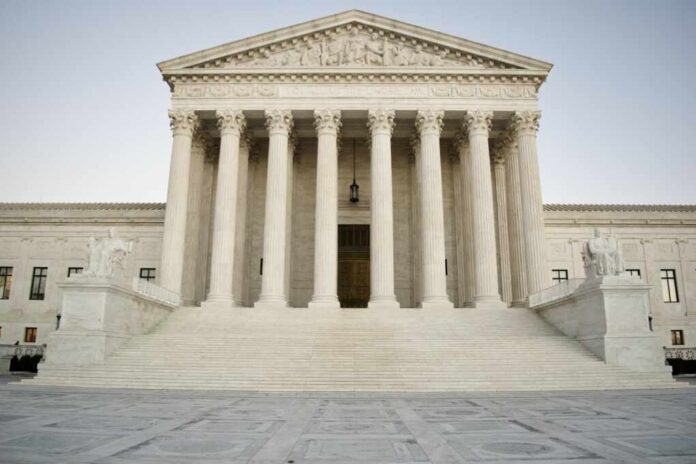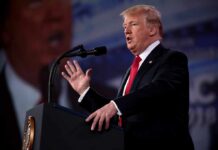
(TruthAndLiberty.com) – On Tuesday, the Supreme Court is set to deliberate on a case that could have significant implications for several individuals, including former President Donald Trump. The case centers around the Sarbanes-Oxley Act, a law established in 2002 in the aftermath of the Enron scandal. This act is currently under scrutiny for its role in the prosecutions related to the events of January 6, 2021.
President Joe Biden’s Justice Department has employed the Sarbanes-Oxley Act to bring charges against over 300 participants of the January 6 events. Additionally, this law is pertinent to two accusations made by special counsel Jack Smith against Trump in a case concerning election interference in Washington D.C.
The relevance of the Sarbanes-Oxley Act extends to another key issue concerning presidential immunity, which is also due for oral argument on April 25 in a separate case involving Trump. The outcome of these cases could redefine the legal landscape regarding the accountability of high-ranking officials, including a former President.
This Tuesday’s arguments will focus on Fischer v. United States, involving Joseph Fischer, a former police officer from Pennsylvania. Court documents detail Fischer’s involvement on January 6, noting his attendance at the “Stop the Steal” rally before he and a companion briefly left the city. They returned upon hearing that the crowd had surged at the Capitol, after which Congress had paused its certification of the 2020 election results.
Fischer’s time in the Capitol was brief but consequential—he ventured about 20 feet inside, encountered a line of police officers, got pepper-sprayed, and exited all within approximately four minutes. He faces seven charges, but the focus for the Supreme Court is specifically on Title 18 Section 1512(c). This law stipulates severe penalties for anyone who corruptly alters, destroys, conceals, or otherwise obstructs official proceedings.
The debate over this statute emerged after a District Court judge, appointed by Trump, ruled in favor of Fischer, asserting that the law was meant solely for evidence tampering that directly obstructs an official proceeding. However, this decision was overturned by the D.C. Circuit Court of Appeals, which interpreted the law as applicable to all forms of corrupt obstruction of an official proceeding, aside from those specifically related to evidence tampering.
As the Supreme Court hears this case, the broader implications hang in the balance, potentially affecting not only the defendants of January 6 but also setting precedents for how similar cases are handled in the future, including those involving claims of presidential immunity.
Copyright 2024, TruthAndLiberty.com













